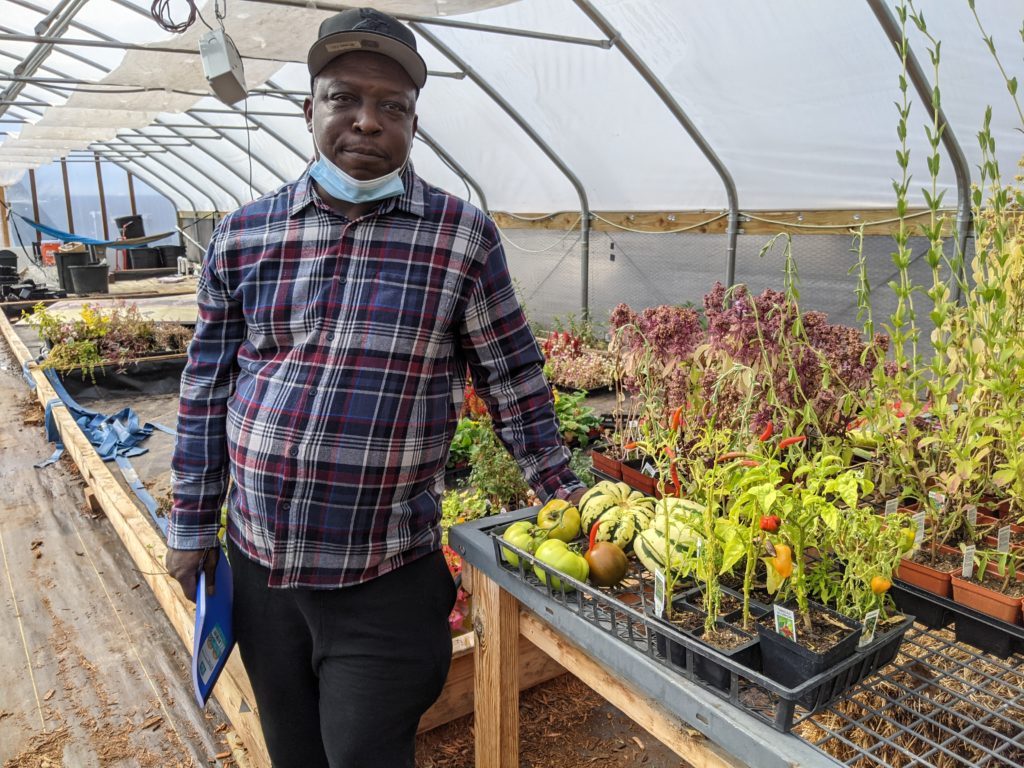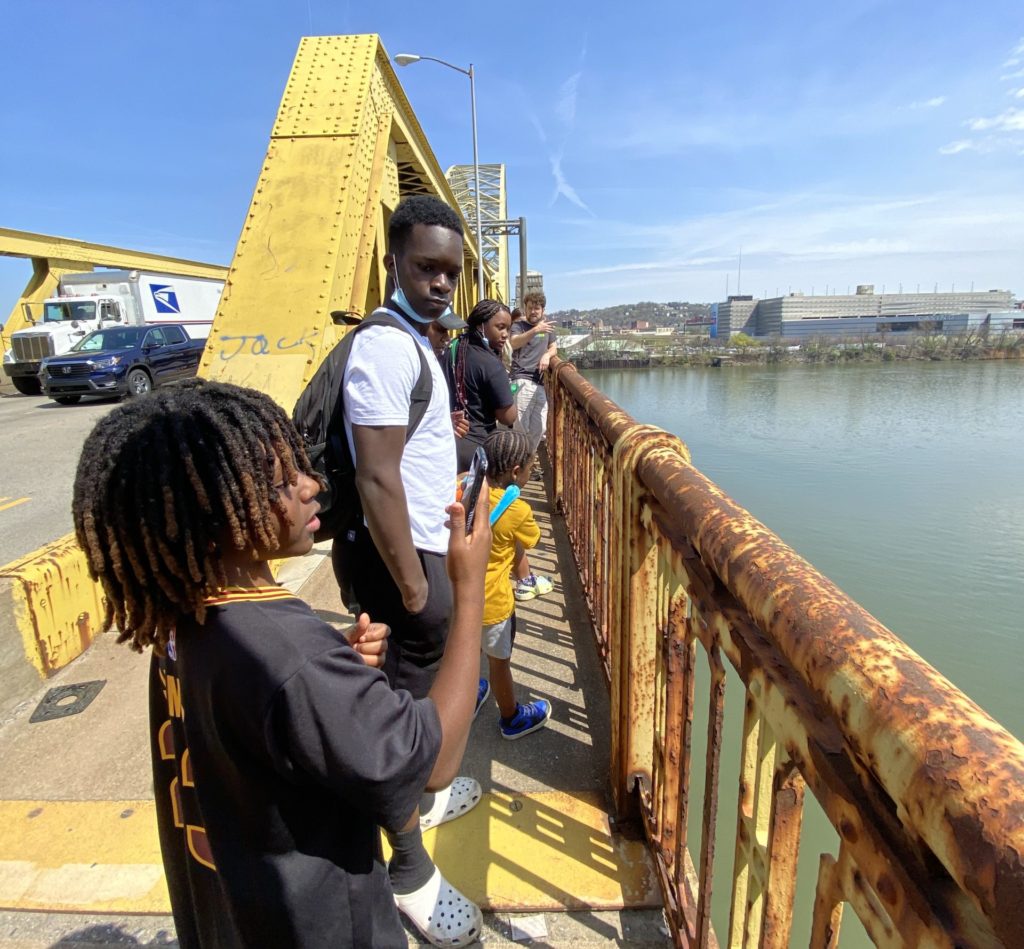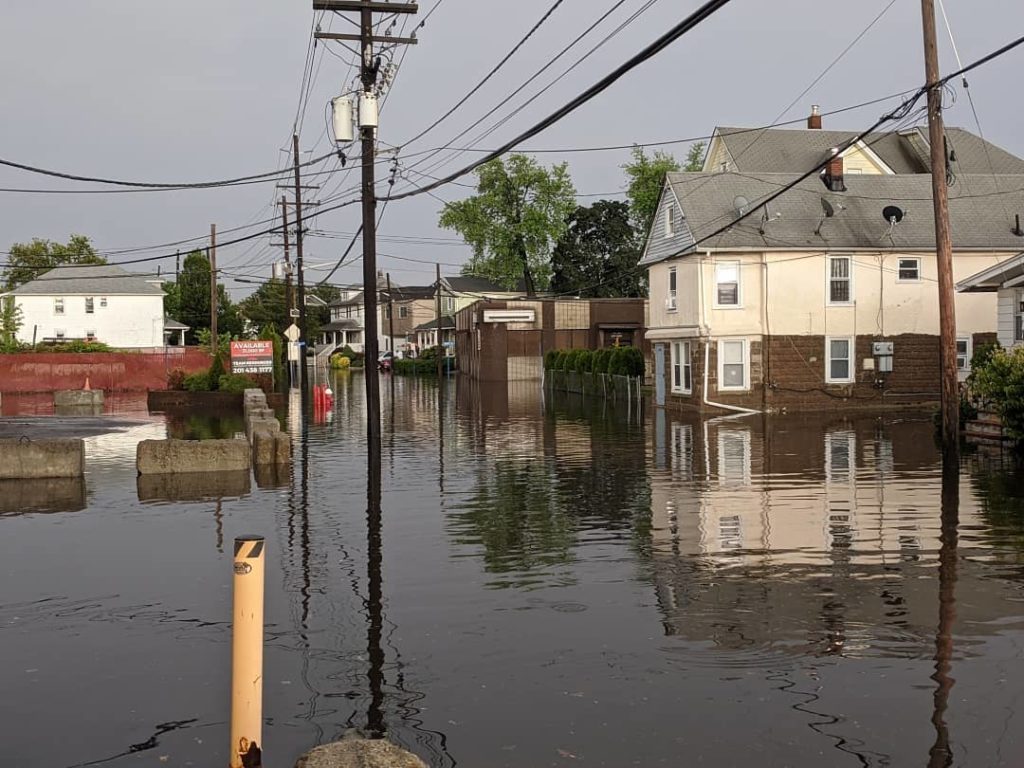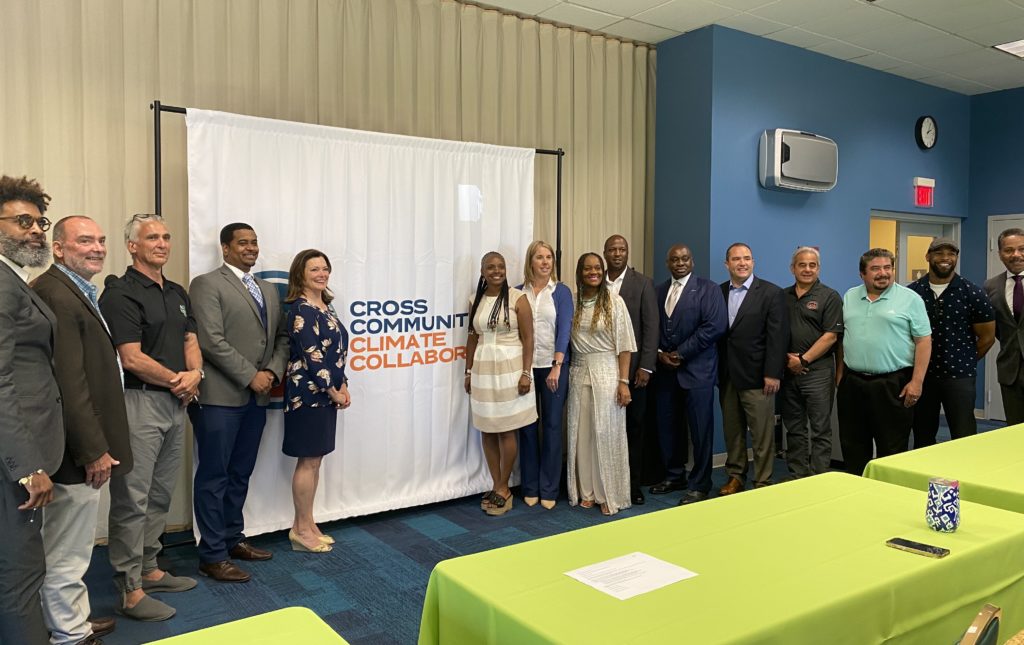BY TFN STAFF
From helping neighbors install rain barrels in New Jersey to growing food at an urban agriculture site in Minnesota to planting native trees and community gardens on the Hawaiian island of Kaua‘i, the latest round of Partners for Places grants will help support efforts to create more equitable and resilient communities across the U.S.
In all, eight U.S. communities will receive nearly $1.3 million in Partners for Places matching grants to support sustainability efforts that focus largely on addressing the needs of historically marginalized communities that are disproportionately impacted by an escalating climate crisis and other environmental injustices.
By bringing together local governments, place-based funders and frontline community groups, these projects are also helping build relationships that will fuel even more action and collaboration at the grassroots level — fostering authentic engagement and input from populations and places that often bear the brunt of climate-fueled inequities but are often left out of decision-making processes.
The eight communities receiving this latest round of Partners for Places grants are: Baltimore County, Md.; Cook County, Ill.; Duluth, Minn.; Hackensack, N.J.; Kaua‘i County, Hawai‘i; Multnomah County, Ore.; Pittsburgh, Penn.; and San Diego County, Calif.
Meet the New Grantees!
So how will they use Partners for Places grants?
In San Diego County — where local leaders have proposed an ambitious plan to move the region toward zero-carbon emissions — the Partners for Places grant will be used to support targeted engagement of refugee, asylee and immigrant communities as part of the County’s larger regional engagement strategy, ensuring that implementation plans are equitable, prioritize community needs and offer solutions to climate change that are informed and shaped by those most impacted.
Illinois’ Cook County will use the Partners for Places funding to support a broader effort to bring together communities across racial and economic divides to share ideas, secure resources and drive large-scale projects to achieve equity and sustainability goals and reduce greenhouse gas emissions. The project also includes efforts to increase access to electric vehicle charging stations and increase the number of commercial properties, small businesses and households that embrace solar power and other green technologies.
Fostering authentic and inclusive community engagement, especially in areas that have been racially and economically marginalized, is a critical goal fueling many Partners for Places projects.

In Multnomah County, home to the City of Portland, this latest round of funding will build on an earlier Partners for Places grant, addressing the need for more coordinated collaboration between municipal leaders and residents to tackle the climate crisis, including developing a steering committee composed of representatives from local government and frontline communities to guide the planning process.
Partners for Places funding will help the community of Duluth build climate resilience and address health disparities in a low-income neighborhood. The project includes supporting “neighborhood champions” that can advance the city’s climate action plan and build greater neighborhood involvement in city-led policy and project discussions. The project also includes plans to use part of an urban agricultural site as a place for learning and social connection that will increase access to healthy foods. Another goal: helping residents identify and plan their own neighborhood-based projects.
Four of the communities selected for the latest round Partners for Places will receive dedicated funding specifically for green stormwater infrastructure projects.
In Baltimore County, where Black and other communities of color are disproportionately impacted by flooding and pollution, the grant will be used to develop and deliver public outreach and education to implement recently passed environmental enforcement legislation, ensuring water quality violations are corrected in a timely manner, government is responsive and equitable, and waterways are cleaner.
In Pittsburgh, project partners hope to build a foundation for community leadership as significant riverfront planning efforts get underway in the city’s West End. Their goals include engaging young leaders and other stakeholders to outline community needs and lead a holistic, coordinated planning process that will bring people together through activities such as on-the-water tours, community meetings and workshops.

In Kaua‘i County, project partners will use the grant to support the installation of native trees and community gardens in Līhuʻe, the county seat, and create a partnership between county agencies, impacted community members and artists. The project includes community dinners to deepen connections and a collaborative process to identify additional green infrastructure projects. Local Kaua‘i artists will also create public murals near the proposed community gardens, designed to educate neighbors about local water issues and the benefits of green infrastructure, attract residents to use the connecting multimodal pathways, and beautify the downtown corridor.
In Hackensack, where extensive stormwater flooding coupled with a combined sewer system poses environmental and health risks particularly to Latinx, Black and other communities of color, the project seeks to build on flood-mitigation efforts by installing green infrastructure on public and private lands. The project also seeks to directly engage people from communities most impacted by flooding, involving them in green infrastructure planning and installation such as learning how to create rain gardens and install rain barrels that decrease stormwater run-off and help address flooding.
Partners for Places, led by The Funders Network (TFN) in partnership with the Urban Sustainability Directors Network (USDN), will provide $652,909 in funding to these eight communities through the grant program. With contributions from local matching funders, a total of $642,909 will be committed to fund sustainability projects in these selected communities. This grant cycle includes $345,000 — plus the local matching funds — awarded to the green stormwater infrastructure projects in Baltimore, Kuau’i, Hackensack and Pittsburgh. TFN and USDN have partnered with the Green Infrastructure Leadership Exchange, a practitioner network that supports communities seeking to grow green stormwater infrastructure programs, to support outreach efforts.

To date, Partners for Places has awarded more than $9 million across North America in this successful matching grant program, leading to more $19 million in investments.
The matching grant program brings national funder investors together with place-based funders to support equitable sustainable climate action and green stormwater infrastructure projects. The program is currently supported by The JPB Foundation, The Kendeda Fund, The Kresge Foundation, New York Community Trust, The Allen H. and Selma W. Berkman Charitable Trust, and the Pisces Foundation.
Partners for Places will open a new round of funding for the matching grants program in winter 2022. (Applications for Partners for Places Mini Grants will be available later this summer.)
Grants at a Glance
The latest Partners for Places grant recipients, project descriptions, matching funders and frontline community groups are:
- Baltimore County, Md. ($35,000): To build a movement of support for effective, equitable implementation of state-wide solutions addressing environmental response to climate change. Frontline community groups: Waterkeepers Chesapeake, Gunpowder Riverkeeper, and Blue Water Baltimore. Matching funder: Abell Foundation ($35,000).
- Cook County, Ill. ($97,909): To support building additional partners in Cross-Community Climate Collaboration (C4), implement structures for communication and collaboration within and across communities, and implement specific equitable climate projects. Frontline community group: Urban Efficiency Group. Matching funder: Oak Park River Forest Community Foundation ($97,909).
- Duluth, Minn. ($75,000): To build climate resilience and address health disparities in a low-income neighborhood through creative placemaking and collaborative partnership development. Frontline community group: Matching funder: Duluth Superior Area Community Foundation ($75,000).
- Hackensack, N.J. ($75,000): To enhance existing combined sewer separation plans with community-designed green infrastructure to mitigate stormwater flooding in low-income neighborhoods, addressing environmental justice issues. Frontline community group: Greater Bergen Community Action. Matching funder: Northern New Jersey Community Foundation ($75,000).
- Kaua‘i County, Hawai‘i ($85,000): To support the installation of native street trees and community gardens in Līhuʻe and create a plan/partnership framework for future green infrastructure. Frontline community groups: Better Block Hawaiʻi and Rice Street Business Association. Matching funder: Anonymous ($85,000).
- Multnomah County, Ore. ($50,000): To develop a frontline community-centered vision of climate justice that will serve as the foundation for a Multnomah County government and community climate justice plan. Frontline community group: Coalition of Communities of Color (CCC). Matching funder: Meyer Memorial Trust ($50,000).
- Pittsburgh, Penn. ($150,000): To build a foundation for community leadership as significant riverfront planning efforts get underway in Pittsburgh’s West End. Frontline community groups:O.P.E. for Tomorrow Inc., West End Community Group, and Riverlife. Matching funder: Heinz Endowments ($150,000).
- San Diego County, Calif. ($85,000): To develop an equitable, inclusive community engagement process that supports the engagement of impacted refugee, asylee and immigrant communities in the implementation of San Diego County’s Regional Decarbonization Framework. Frontline community group: Confirmation pending. Matching funder: The San Diego Foundation ($75,000).

About Partners for Places
A joint project of The Funders Network and the Urban Sustainability Directors Network, Partners for Places is a successful matching grant program that improves U.S. and Canadian communities by building partnerships between local government sustainability leaders, place-based funders and frontline community groups. National funders invest in local projects developed through these partnerships to advance efforts to create communities that are sustainable, prosperous and just. Through these investments, Partners for Places fosters long-term relationships that make our communities more sustainable, prosperous and equitable. For more information on Partners for Places, visit fundersnetwork.org/partners-for-places/
About The Funders Network
The Funders Network (TFN) is a mission-driven network of grantmakers across North America that seeks to create impact at the intersection of environment, economy and equity. TFN works to inspire, strengthen and expand funding and philanthropic leadership that yields sustainable, prosperous and just regions and communities.
About The Urban Sustainability Directors Network
The Urban Sustainability Directors Network (USDN) a network of local government professionals across the United States and Canada dedicated to create equitable, resilient, and sustainable communities by advancing the field of local government sustainability and equipping practitioners to be catalysts of transformative change.
